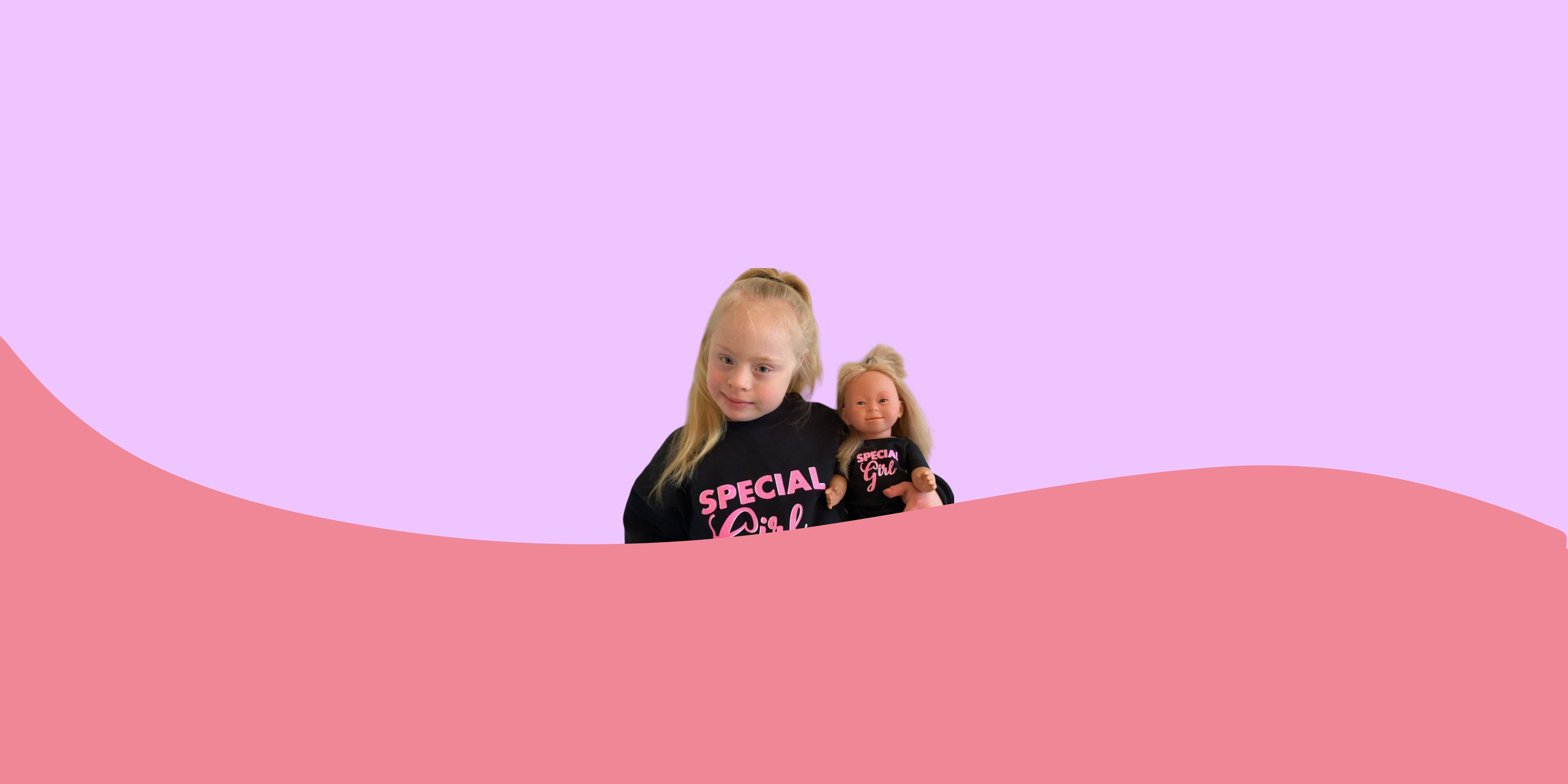Imagine: an eight-year-old girl holding her doll and truly recognizing herself in her toy for the first time. That's exactly what happened with Romy, a cheerful and loving girl with Down syndrome.
When a doll is more than a toy
Romy loves walking fashion shows, dancing, cuddling, and music. Her smile instantly brightens your day. But there was something her mother always noticed – in the world of toys, no one looked like Romy. No doll had her beautiful, round face, her gorgeous gaze, or the characteristics that make her so unique.
Until that one day...
Romy received a doll from Colourful Goodies. A doll with Down syndrome. Not as a caricature. Not as 'special'. But simply as a child. It changed everything.
"Because she looks like me"
Little Romy now takes her doll everywhere. She chats, sings, and sleeps with her doll, and they walk fashion shows together. When you ask her why this doll is her favorite, she answers with a proud smile:
"Because she looks like me."
This doll means more than just a toy. It's a mirror. A huggable confirmation that Romy belongs, that she is not the exception, but simply part of the world.
Diversity in the dollhouse
At Colourful Goodies, it's about more than just playing. The collection brings representation, recognition, and diversity to life. The dolls have different skin colors, wear glasses or hearing aids, have prosthetics, vitiligo, albinism, or, like Romy, Down syndrome.
For children like Romy, this means: I am not different. I am just me. And I am perfect as I am.
Building confidence
These dolls contribute to self-confidence and positive self-image. They help children see themselves and others in all forms, colors, and possibilities. Because the younger a child learns that everyone is valuable, the more beautiful our world becomes.
Romy's story is just one example of why representation in toys is so important. Every child deserves to recognize themselves in the play world around them. Every child deserves a mirror.


